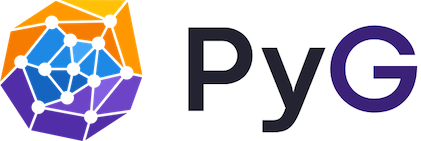This workshop will bring together leaders from academia and industry to showcase recent methodological advances of Graph Neural Networks, a wide range of applications to different domains as well as machine learning frameworks and practical challenges for large-scale training and deployment of graph-based machine learning models.


Overview
Over the past few years, graphs have emerged as one of the most important and useful abstractions for representing complex data, including social networks, knowledge graphs, financial transactions / purchasing behavior, supply chain networks, molecular graphs, biomedical networks, as well as for modeling 3D objects, manifolds, and source code. Deep representation learning on graphs is an emerging field with a wide array of applications, ranging from protein folding and fraud detection, to drug discovery and recommender systems.
In the Stanford Graph Learning Workshop, we will bring together thought leaders from academia and industry to showcase the most cutting edge and recent methodological advances in Graph Neural Networks. The workshop will present new developments in the leading graph machine learning framework and a wide range of graph machine learning applications to different domains. Additionally, the workshop will discuss practical challenges for large-scale training and deployment of graph-based machine learning models.
Registration
The Stanford Graph Learning Workshop will be held on Wednesday, Sept 28 2022, 08:00 - 17:00 Pacific Time.
The entire event will be live-streamed online. Free registrations are available.
If you wish to watch the live stream, please register here. The video link for live streaming is here.
If you wish to attend in person, please register here.
Workshop Schedule
08:00 - 09:00 Registration & Breakfast
09:00 - 09:30 Jure Leskovec, Stanford University – Welcome and Overview of Graph Representation [Slides] [Video]
09:30 - 10:00 Matthias Fey, PyG – What’s New in PyG [Slides] [Video]
10:00 - 10:20 Ivaylo Bahtchevanov, PyG – Building PyG Open Source Community [Slides] [Video]
10:20 - 10:40 Manan Shah & Dong Wang, Kumo.ai – Scaling-up PyG [Slides] [Video]
10:40 - 11:00 Break
11:00 - 11:20 Rishi Puri, Nvidia – Accelerating PyG with Nvidia GPUs [Slides] [Video]
11:20 - 11:40 Ke Ding, Intel – Accelerating PyG with Intel CPUs [Slides] [Video]
11:40 - 12:00 Andreas Damianou, Spotify – Podcast Recommendations and Search Query Suggestions using GNNs at Spotify [Video]
12:00 - 12:20 Hema Raghavan & Tin-Yun Ho, Kumo.ai – Enabling Enterprises to Query the Future using PyG [Video]
12:20 - 12:30 Joseph Huang, Stanford University – The Stanford CS LINXS Summer Research Program [Video]
12:30 - 13:30 Lunch
13:30 - 13:50 Marinka Zitnik, Harvard University – Graph AI to Enable Precision Medicine [Video]
13:50 - 14:10 Bryan Perozzi, Google – Challenges and Solutions in Applying Graph Neural Networks at Google [Slides] [Video]
14:10 - 14:30 Srijan Kumar, Georgia Institute of Technology – Dynamic and Signed GNNs for Web Safety and Integrity - Applications to Bad Actor Detection on Social Media Platforms [Slides] [Video]
14:30 - 14:50 Luna Dong, Meta – Graph Mining for Next-Generation Intelligent Assistants on AR/VR Devices [Slides] [Video]
14:50 - 15:10 Michi Yasunaga, Stanford University – Graph Learning in NLP Applications [Slides] [Video]
15:10 - 15:30 Break
15:30 - 15:50 Weihua Hu, Stanford University – Open Graph Benchmark: Large-Scale Challenge [Slides] [Video]
15:50 - 16:10 Hongyu Ren, Stanford University – Knowledge Graph Completion and Multi-hop Reasoning in Massive Knowledge Graphs [Slides] [Video]
16:10 - 17:00 Industry Panel – Challenges and Opportunities for Graph Learning [Video]
- Naren Chittar, JPMorgan Chase (moderator)
- Evan Feinberg, Genesis Therapeutics
- Yunyao Li, Apple
- Neil Shah, Snap
- Karthik Subbian, Amazon
17:00 Happy Hour



